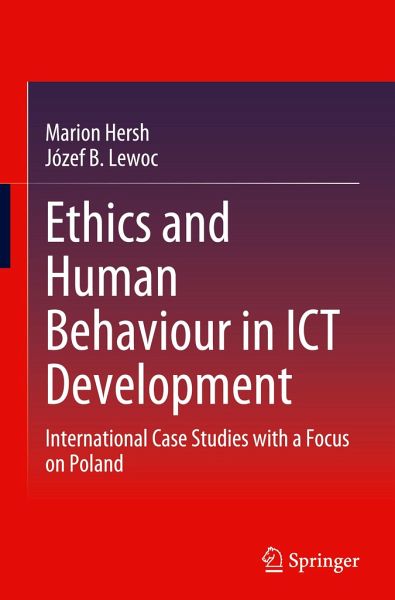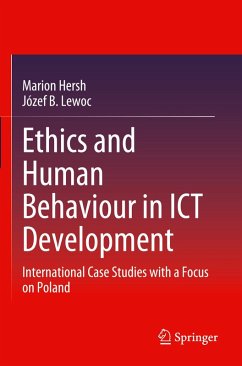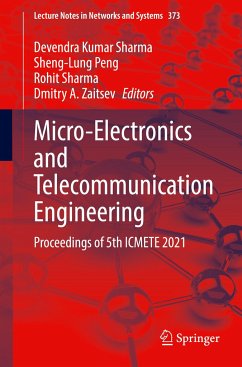
Ethics and Human Behaviour in ICT Development
International Case Studies with a Focus on Poland

PAYBACK Punkte
53 °P sammeln!
Ethics and Human Behaviour in ICT Development discusses ethics in a professional context and encourages readers to self-assessment of their own behaviour. It provides thought-provoking accounts of the little-known early history of technological development in information and communication technology (ICT) and the automation industry in Poland, with a focus on Wroclaw. The book provides a framework for understanding the relationship between ethics and behaviour, and analyses critically ethical and behavioural issues in challenging workplaces and social contexts. It includes:case studies from ar...
Ethics and Human Behaviour in ICT Development discusses ethics in a professional context and encourages readers to self-assessment of their own behaviour. It provides thought-provoking accounts of the little-known early history of technological development in information and communication technology (ICT) and the automation industry in Poland, with a focus on Wroclaw. The book provides a framework for understanding the relationship between ethics and behaviour, and analyses critically ethical and behavioural issues in challenging workplaces and social contexts. It includes:
case studies from around the world, especially Poland, which illustrate the relationships between human behaviour and ethics;biographies of successful Polish ICT and automation leading designers;analysis of case studies of human behaviour and ethics in challenging industrial development and other environments; andillustrative practical applications alongside thetheory of human behaviour and ethics.
The authors demonstrate the ingenuity of the early Polish designers, programmers and other specialists in overcoming the shortage of components caused by import embargoes to enable Poland to develop its own computer industry. An example of this is Elwro, formerly the largest manufacturer of computers in Poland. The discussion of its growth illustrates the potential of human creativity to overcome problems. The discussion of its fall highlights the importance of ethical approaches to technology transfer and the dangers of a colonialist mentality.
The book is designed for engineers, computer scientists, researchers and professionals alike, as well as being of interest for those broadly concerned with ethics and human behaviour.
case studies from around the world, especially Poland, which illustrate the relationships between human behaviour and ethics;biographies of successful Polish ICT and automation leading designers;analysis of case studies of human behaviour and ethics in challenging industrial development and other environments; andillustrative practical applications alongside thetheory of human behaviour and ethics.
The authors demonstrate the ingenuity of the early Polish designers, programmers and other specialists in overcoming the shortage of components caused by import embargoes to enable Poland to develop its own computer industry. An example of this is Elwro, formerly the largest manufacturer of computers in Poland. The discussion of its growth illustrates the potential of human creativity to overcome problems. The discussion of its fall highlights the importance of ethical approaches to technology transfer and the dangers of a colonialist mentality.
The book is designed for engineers, computer scientists, researchers and professionals alike, as well as being of interest for those broadly concerned with ethics and human behaviour.












